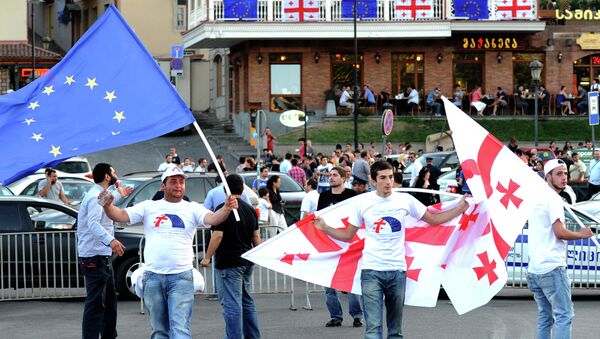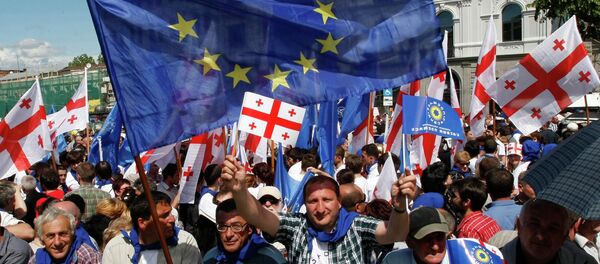The topic of euroskepticism started to appear in Georgia after the 2008 Russo-Georgian conflict. However, until recently these discussions stayed mostly among inner circles of few Georgian intellectuals and political experts.
However, now the topic can't be ignored. In May, the National Democratic Institute for International Affairs, an organization created by the US government to promote democracy in developing nations, released a report based on polls that showed an astonishing 31 percent of Georgians would prefer if their country joined the Eurasian Economic Union (EEU), led by Russia, while 27 percent of respondents were undecided whether Georgia would be better off with the EU or the EEU.
Interestingly, in August of 2014, only 20 percent of respondents wanted their country to join the EEA, while 59 percent voted in favor of the EU, Regnum reported.
These numbers reveal that more and more Georgians are becoming skeptical about their country's potential EU membership. Meanwhile, the number of Georgians who want their country to get closer with its former Soviet neighbors is rising.
Some members of the ruling political party Georgian Dream openly criticize the country's possible future with the EU and NATO. Those who oppose the Euro integration fear that the EU brings moral decadence and threatens Georgia's national identity.
When it comes to politics, Georgia is a highly polarized nation. While some argue against the country's EU membership, others claim that the future of Georgia lies only with Europe, somehow believing that Western institutions will serve as an all-in-one cure against all troubles in Georgia, Regnum reported.



